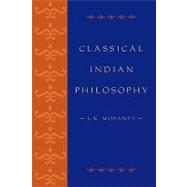
Note: Supplemental materials are not guaranteed with Rental or Used book purchases.
Purchase Benefits
What is included with this book?
| Preface | ix | ||||
|
1 | (10) | |||
|
1 | (1) | |||
|
2 | (3) | |||
|
5 | (6) | |||
| Part 1: Theory of Knowledge (Pramana Sastra) | |||||
|
11 | (30) | |||
|
15 | (1) | |||
|
15 | (1) | |||
|
16 | (1) | |||
|
17 | (1) | |||
|
18 | (3) | |||
|
21 | (3) | |||
|
24 | (1) | |||
|
25 | (3) | |||
|
28 | (2) | |||
|
30 | (1) | |||
|
31 | (1) | |||
|
31 | (1) | |||
|
32 | (3) | |||
|
35 | (1) | |||
|
36 | (5) | |||
| Part 2: Metaphysics (Prameya Sastra) | |||||
|
41 | (18) | |||
|
41 | (1) | |||
|
42 | (1) | |||
|
43 | (3) | |||
|
46 | (1) | |||
|
47 | (4) | |||
|
51 | (2) | |||
|
53 | (2) | |||
|
55 | (1) | |||
|
56 | (3) | |||
|
59 | (14) | |||
|
64 | (3) | |||
|
67 | (1) | |||
|
68 | (2) | |||
|
70 | (3) | |||
|
73 | (22) | |||
|
73 | (6) | |||
|
79 | (5) | |||
|
84 | (1) | |||
|
85 | (4) | |||
|
89 | (1) | |||
|
90 | (5) | |||
| Part 3. Philosophy of Politics, Law, and Morals (Dharma Sastras) | |||||
|
95 | (10) | |||
|
95 | (2) | |||
|
97 | (1) | |||
|
98 | (2) | |||
|
100 | (1) | |||
|
100 | (5) | |||
|
105 | (20) | |||
|
105 | (2) | |||
|
107 | (3) | |||
|
110 | (2) | |||
|
112 | (2) | |||
|
114 | (1) | |||
|
115 | (2) | |||
|
117 | (5) | |||
|
122 | (1) | |||
|
122 | (3) | |||
| Part 4: Religion and Art | |||||
|
125 | (8) | |||
|
125 | (2) | |||
|
127 | (1) | |||
|
128 | (1) | |||
|
129 | (1) | |||
|
130 | (1) | |||
|
131 | (2) | |||
|
133 | (8) | |||
|
133 | (2) | |||
|
135 | (1) | |||
|
136 | (5) | |||
| Part 5: Beyond the Pramana-Prameya Distinction | |||||
|
141 | (6) | |||
|
142 | (2) | |||
|
144 | (3) | |||
| Appendix 1: A Note on Navya-Nyaya Analysis of Cognition | 147 | (2) | |||
| Appendix 2: Some General Features of the Indian Theories of Knowledge | 149 | (4) | |||
| Appendix 3: The Classical Darsanas (Systems) | 153 | (6) | |||
| Appendix 4: Glossary of Important Sanskrit Terms | 159 | (8) | |||
| Bibliography | 167 | (8) | |||
| Index | 175 | (6) | |||
| About the Author | 181 |
The New copy of this book will include any supplemental materials advertised. Please check the title of the book to determine if it should include any access cards, study guides, lab manuals, CDs, etc.
The Used, Rental and eBook copies of this book are not guaranteed to include any supplemental materials. Typically, only the book itself is included. This is true even if the title states it includes any access cards, study guides, lab manuals, CDs, etc.